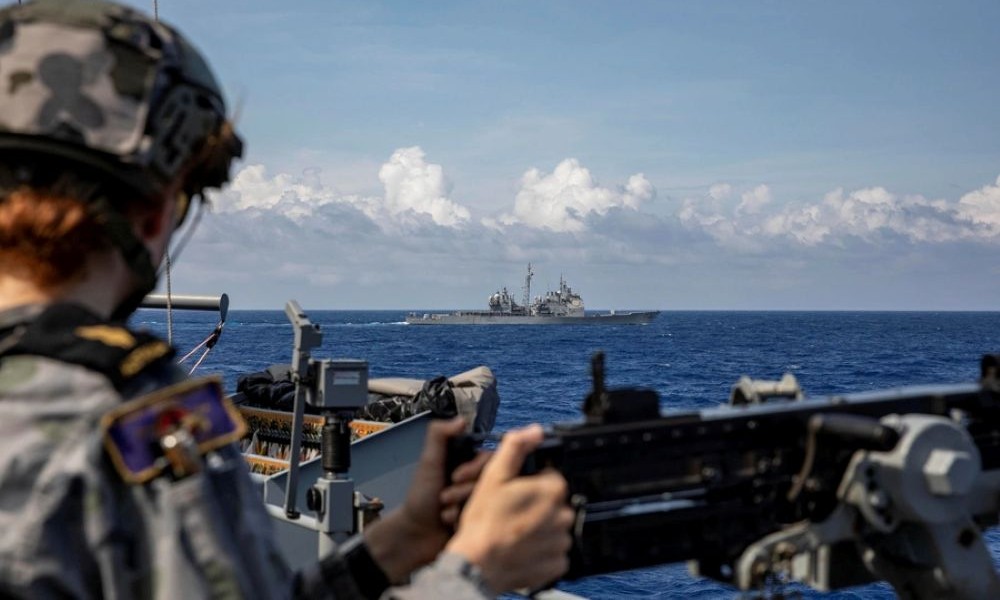
Atop the Mast: the flag of the Philippines
On the Yardarm: the flags of Vietnam and the Naval Ensign of Japan
Americans should be better informed and more concerned than we are about events thousands of miles away in the South and East China Seas. A major conflict, which would likely involve the U.S., could easily start there given current trends and tensions.
These seas are bordered in part by the Philippines, Vietnam and Japan, each a distinctly different Asian nation. In times past, both the Philippines and Vietnam were occupied and largely controlled by foreign powers. The Philippines had to endure early American gunboat diplomacy, American occupation for many decades, and then brutal Japanese occupation in the 1930s through the end of World War II. Vietnam was treated as a French colony for 70 years until it successfully drove out the French in the early 1950s. Japan also occupied Vietnam during World War II.
Notwithstanding their different historical journeys and cultures, today these three Asian nations are working closely together in the face of a common economic and military adversary: China. It claims control over islands in the East China Sea, which Japan contests. In the South China Sea, the Philippines and Vietnam have conflicting claims with China over several islands. In response to aggressive Chinese military activities, all three nations are strengthening security cooperation with one another and with the U.S.
The 7,000 islands that make up the Philippines are fast becoming the key cornerstone in global power dynamics, given their location close to Taiwan and to vital sea lanes for the shipment of oil and other goods. The U.S., with many military bases in the Philippines, is committed to defending it if it is ever attacked.
For Japan, which enjoys the third largest economy in the world, being on the frontline in the New Cold War is difficult. Some 70,000 U.S. troops are spread among 70 military bases in Japan. In turn, Japan’s deepening defense ties with Vietnam and the Philippines are worrisome to China. Japan is shifting its focus in Southeast Asia from economic ties to military cooperation.
Respect for international law and freedom of navigation is a key principle that unites these three nations. Meanwhile, Vietnam has been building up its islands in preparation for Chinese aggression.
Sadly, what was once the American-Chinese de facto alliance has turned bitter, dangerous and unpredictable. To avoid a regional and global conflict, diplomacy and collaboration will be essential.
Discover more from Post Alley
Subscribe to get the latest posts sent to your email.
